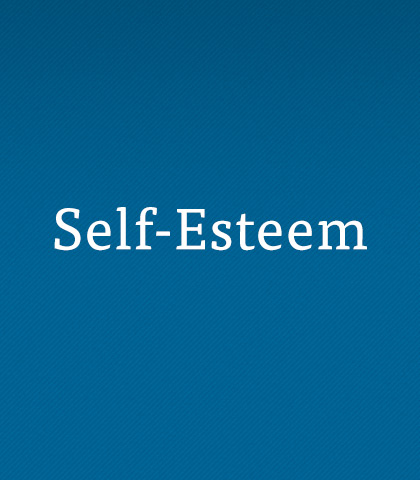Happy Hopes for High Achievers
Paul boasted—at least until he met the Lord on a dusty road to Damascus. After that, all of his achievements he considered as “rubbish.”

The regard with which we view ourselves is called our self-esteem. It is our mental self-perception. We develop this perception throughout our lives as it springs from our nature, is cultivated by our nurture, and fleshed out and expressed in our experiences. Self-esteem is tied to our sense of belonging, our sense of worth, and sense of accomplishment.
Our problem is that sin affects every part of our being including our mental perceptions. The result is a distorted, false view of ourselves, others, and God. And since self-esteem often drives our behaviour, a distorted viewpoint will lead to sinful actions.
God's answer to our problem is to provide His Word for truth and knowledge about Himself and His actions toward us. His Word also provides us with truth and knowledge about who we are. Our new self-perception begins with a new birth into a new family. We are a new creation in Christ with a new identity. We are given a new mind—the mind of Christ—so we can see God as He is and see ourselves in proper relation to Him. At the heart of a proper self-esteem is a proper recognition of this new position in Christ. The Spirit of God in us teaches us the truth of who we are in Christ as we grow in the knowledge of God's Word. In learning these truths we can then go on to behave in a way consistent with who we are.
Paul boasted—at least until he met the Lord on a dusty road to Damascus. After that, all of his achievements he considered as “rubbish.”
Esther’s commitment to God and ability to do what seemed impossible gave me hope. My weight problem seemed small compared to what Esther faced. If she could do what needed to be done, so could I.
Despite their "in-control" exterior, men often feel like imposters and are insecure that their inadequacies will be discovered.
I think a lot of us would say we desire to be wise. For me it’s true—I want to be a wise person. But often I suspect deep down I don’t mind not being wise so long as others’ perception of me is that I am, in fact, wise.
By dishing out likes, the Like Ninja is one of the only people I know of who uses the anonymity of the Internet to encourage and build up others. I imagine his likes are the equivalent of smiling at a stranger.
This inductive study is designed to create a better understanding of finding and giving encouragement. For the next 30 days read the questions and allow them to spark deeper personal reflection and life change.
The parable made me aware of my own imperfections and need for God’s grace and forgiveness. This realization helped me release my dad from the unfair blame I had placed on him.
This article is designed to create a better understanding of how to silence internal insecurities. For the next 30 days read the questions and allow them to spark deeper personal reflection and life change.
Strained family relationships can lead to feelings of failure and guilt, but there is a way to repair and rebuild damaged relationships.
When I think of doctrine in the Christian life, I liken it to grammar. Doctrine is boring. It’s old school. But wait…is that true? Maybe doctrine is actually the key to a passionate and vibrant faith.